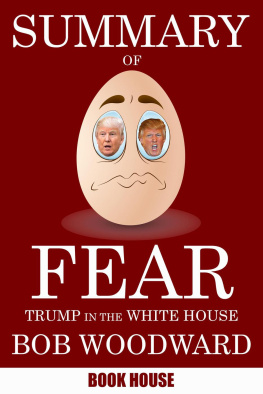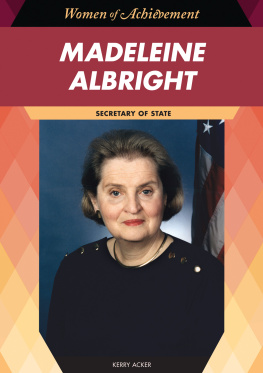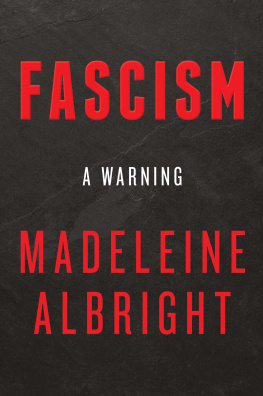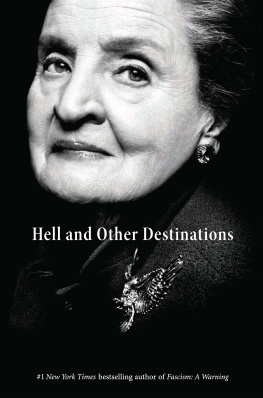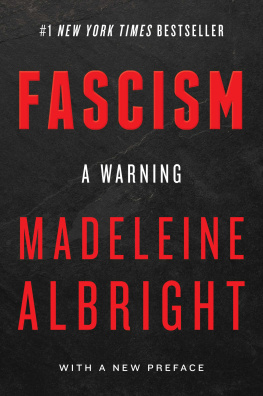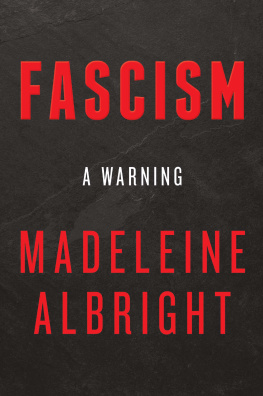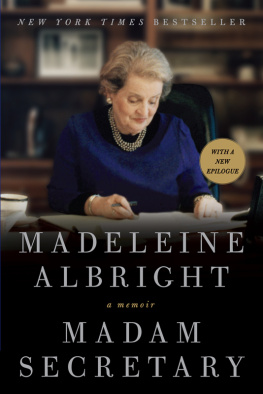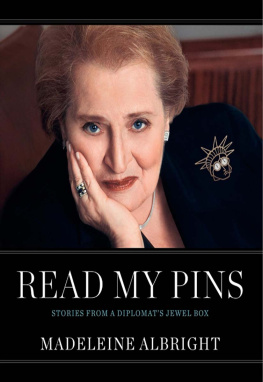Insights on Madeleine Korbel Albright's Madam Secretary
Insights from Chapter 1
#1
On election night, Albright was with the President. She was expecting a call from Vernon Jordan, who was to head up the vetting team at the State Department. She thought it would be a good idea for her to connect with White House personnel and begin the process.
#2
Albright was eventually offered the job, and she accepted. But she had to be careful about how she made it clear to the White House that she was interested in the position. The Clinton administration had run into trouble with some of its appointments, and they had issued a directive that candidates for all positions be thoroughly vetted before the White House would even acknowledge that they were under consideration.
#3
Albright was a professional who had no interest in the job. She was grateful to have friends like Leahy to jolt her into action mode when necessary.
#4
Albright made a point of visiting the capitals of dozens of countries, which was rarely done by the State Departments more senior diplomats. She was building political capital with the dozens of envoys throughout the world.
#5
After the election, Albright began to consolidate her power. She was able to protect her turf by attending the regularly scheduled weekly cabinet meetings as well as the National Security Councils principals strategy sessions.
#6
After the Somalia debacle, the President began to ignore the advice of his senior advisors and instead relied on his own instincts. He wanted someone at State who shared his vision.
#7
The battle lines were drawn between the Board, led by Bowles and Rubin, and Jordan, who wanted to promote the strengths of all the candidates. The three short-list candidates had strengths and weaknesses. George Mitchell had little foreign policy experience, but he was media-savvy.
#8
The Boards short list read like a casting call for Grumpy Old Men, with all three being white males in their fifties. None of them possessed the qualities needed to transcend the various factions inside the White House.
#9
Albrights campaign received a boost when Senate Foreign Relations Committee Chairman Jesse Helms gave his strong support to her. He informed the White House which candidates would make it through the committee and which ones would not.
#10
As the pressure on Albright increased, she remained extremely calm. She loved the UN job and would have remained there regardless of the Presidents decision.
#11
The appointment of Albright as secretary of state was a major setback for the Clinton White House, as it alienated the key voting bloc of female voters.
#12
As the debate over Albrights nomination intensified, the issue of gender took on a disproportionate level of importance. The battle lines were drawn, with feminist groups going on the attack and a small but extremely powerful contingent of white males circling the wagons as things heated up.
#13
Albright began to lobby Republican senators, who she knew hated the UN and foreign aid, to support her for secretary of state. She gained the support of Republican foreign policy maven Jeane Kirkpatrick.
#14
Clinton was initially dismissive of the medias suggestion that the UN Ambassador had been eliminated from consideration, and he had openly supported Albrights talents. But publicly, the first sign that the President was leaning toward Albright came when Vice President Al Gore not only broke ranks with the Board, but took great pains to distance himself from their thinking.
#15
On Tuesday, a break came when the President called Albright, catching her in her Manhattan apartment just as she was about to leave. They spoke for several minutes, with the President telling her how exhausted he was from the campaign. He didnt offer her the job, but the rumors continued to swirl that she was going to be offered it.
#16
On Tuesday, the day after the election, Albright surmised that the President was going to take his sweet time in deciding on State. But she had no idea how right she was. The President had grown extremely attached to the Army-Navy course, and he often played two or three balls at a time.
#17
The President decided to select Madeleine Albright as his secretary of state. He called a longtime ally in a diplomatic post in the Middle East to take one last poll of an old friend on the selection of Albright. The call was made from the study and lasted about ten minutes. By the time it was over, the President was wringing his hands.
#18
The call finally happened on December 5, and Albright was given the job. She was told that some members of the diplomatic corps had strong reservations concerning her ability to deal with the third world, particularly Muslim leaders.
Insights from Chapter 2
#1
The saying in Washington that nothing happens by accident applies to politics as well. Madeleine Albrights meteoric rise to power has been attributed to her hosting dinners and cocktail parties at her Georgetown town house, which attracted the best foreign policy minds in the city.
#2
While Albright was often criticized for having salon dinners, which were actually just colleague dinners, she was actually very down to earth and never lost her sense of humor.
#3
Albrights work with the Center for National Policy involved her work in the 1980s first as the Vice Chairman of the National Democratic Institute for International Affairs, and later as the head of the Center. She transformed the organization in every way within a short period of time.
#4
Albright developed a great relationship with many Democratic senators and congressmen during her time at the Center for National Policy, and they were extremely important to her career later on.
#5
Albrights knack for building relationships was not calculated, but it was not unplanned either. She took advantage of the situation in which she found herself, and she was able to come through for whoever needed her.
#6
As Clinton and Albright got to know each other, they quickly realized they had a lot in common, including their strong anti-Communist beliefs.
#7
As the dinner wound down, the discussion turned to foreign policy. Clinton argued that the United States could not sit idly by while the Soviet Union or any other nation attempted to expand their territory in areas that were traditionally American.
#8
The salons were quite important in Albrights career, as they allowed her to build relationships with many politicians and help position her as the nucleus of the Democratic foreign policy molecule.
#9
Albrights friend Vclav Havel was the president of the newly formed Czech Republic. She wanted to throw a party for him that would be unlike any other party. She spent weeks planning the event, and it went off without a hitch. But as neighbors spied the Presidential motorcade outside, the media had been tipped off.
#10
Albright took her guests off-campus for dessert, and then brought them to a jazz club. She had arranged for the entire party to relocate to the Blues Alley, not just for dessert, but to witness an extraordinary moment.
Insights from Chapter 3
#1
Madeleine Albright was a teacher at Georgetown Universitys Walsh School of Foreign Service. She had always distinguished herself at every level, but when she sought a position on the faculty in 1982, she was met with less than open arms.
#2
The story of how Madeleine Albright was rejected from Georgetown University School of Government is widely reported to be due to her academic credentials being thin compared to those of the professors there, but this is not true.


